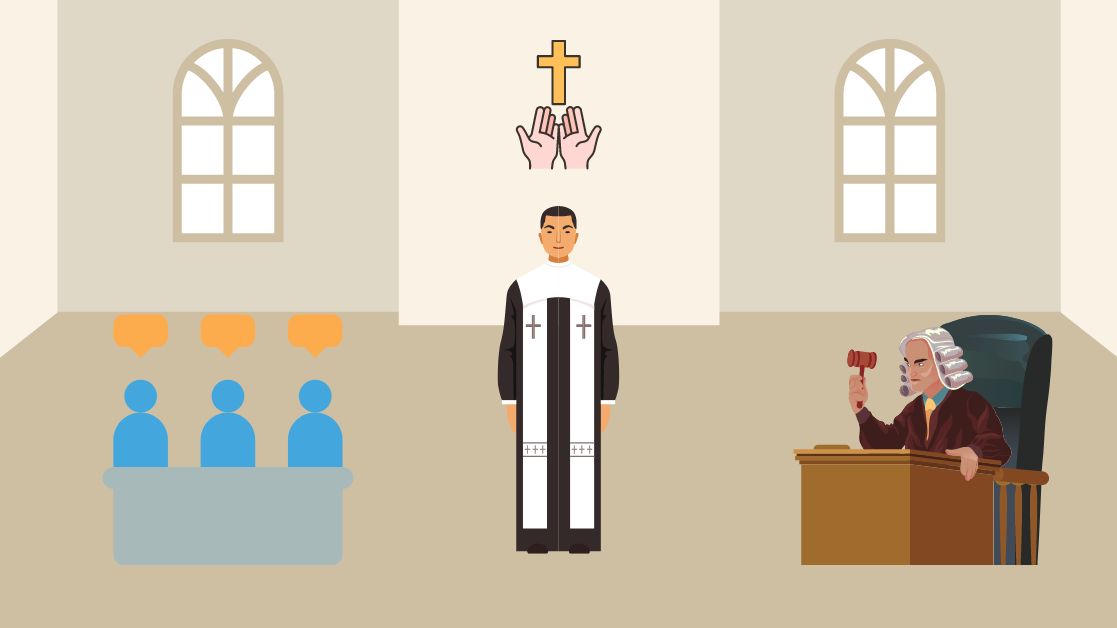It is wrong and should not be done to judge people based on anything other than God’s word. However, believers can and ought to distinguish between sin and holiness. Jesus commanded His people to use good judgment.
Only God can see the big picture and completely understand a person’s heart, intention, and intent, but believers may evaluate situations and behaviors using God’s word so that we can distinguish between sin and righteousness, truth and deception, and true teachers from false ones. Judging based on appearances is wrong, yet Jesus taught us to judge rightly.
What the Bible Says About Judging Others
When the adulterous woman who had been condemned and given a death sentence by stoning came across Jesus, it was Jesus who stood to defend her against the erroneous verdict ( John 8:7). Many academics think that Jesus began writing all the sins of the woman’s accusers in the sand in this story. Perhaps Jesus was urging them to examine and address their own sin before they stoned the woman for her transgressions.
We must avoid passing harsh judgment or condemnation on others. The apostle Paul warned against showing disdain for others and criticizing other Christians based on pointless arguments to prevent causing internal turmoil among Christians (Romans 14:1-13).
A bad choice has the potential to split the body of Christ. Away from God and the work He is doing in our lives, we could experience distractions. By assisting the other person in their pursuit of virtue, when we make wise judgments out of love and humility, we respect God and the other person.
People frequently use Matthew 7:1 as proof that we shouldn’t judge others. However, if you continue reading to verse 6, Jesus instructs us to refrain from giving what is holy to dogs and showing off our pearls in front of pigs. You must form moral thoughts about the person in order to fulfill this verse.
Furthermore, Jesus warns us to watch out for false prophets who approach us dressed as sheep in Matthew 7:15.
To spot a fake sheep, a sheep must be discerning. It entails declaring the man’s doctrine to be false. Some would argue that while exposing false doctrine in general terms is acceptable, naming specific false teachers should never be done.
You are unfairly judging someone else when you don’t examine your own guilt before attempting to assist someone else with their sin. This assertion is made by Jesus in Matthew 7:1–5. While He does not advise against it, you should take care of the log in your own eye before assisting your brother to remove the speck from his eye.
If an eye doctor had a log protruding from his eye when you went to have a speck out of your eye, you wouldn’t want him to touch your eye. However, if you haven’t removed the speck in your own eye, you’ll come out as arrogant and lacking in compassion if you attempt to aid a brother with his blemish. We are humbled to remove our own flaws!
Is the Statement “Only God Can Judge Me” True?
“Only God can judge me,” is a common refrain that is used as justification for one’s sinfulness, selfishness, infliction of harm upon others, and living contrary to God’s ways. But according to the Bible, God has the authority to judge each and every one of us.
Everyone will stand before God’s throne to be judged and account for all of their deeds at some point in the future. Nothing in the Bible, in fact, advocates leading a life of hedonism in which we act whenever we choose, with little to no regard for God or other people. Paul actually published a piece in opposition to that notion. Even while we all have the ability to choose, not everything we do as Christians is for our benefit or edification.
We as Christians still need to hold each other responsible as brothers and sisters in Christ to practice righteous lives even if God is our ultimate and sole judge.
How to Advise Others Kindly
By urging someone to turn from their sin and repent, we can emulate what Jesus did by doing it in a loving manner. For the purpose of extending invitations to live righteously and have a relationship with God, Jesus condemned and exposed sin and error.
Paul advised the Galatians in a letter that this kind of judgment and restoration should be carried out carefully and cautiously to avoid succumbing to the same temptation and immorality (Galatians 6:1).
Bottom Line
Playing the judge only causes disagreements and damages relationships. Obediently attempting to love and uplift people while humbly surrendering to God and His Word leads to harmony and healed relationships.
The Bible has a wealth of knowledge about how to judge others rightly and how to avoid passing harmful, wicked judgment. The correct judgment allows us to show compassion, love, and kindness to the other person. Our responsibility is to approach a struggling Christian sibling or brother in a gentle manner.




